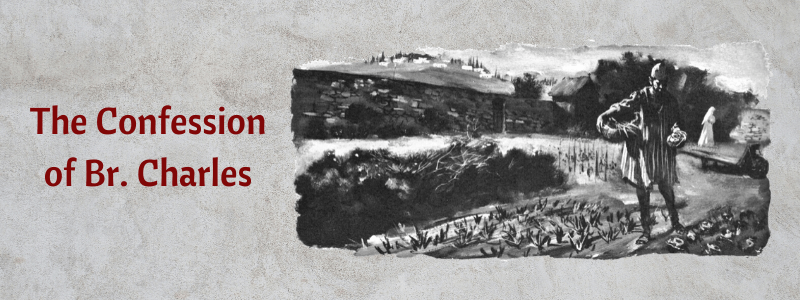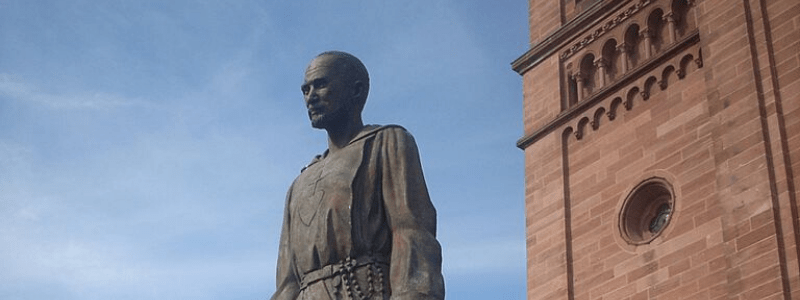The Confession of Br. Charles

A canonized saint by definition is someone who practiced heroic virtue and lived in fidelity to God’s grace. Coming from all walks of life, they show us how any situation can be transformed by the light of the Gospel.
To honor the saints, we place them on a pedestal or enshrine them in stained glass, complete with a halo. We look up to them, and without realizing it, we often assume they must have been angels when they walked the earth. Did St. Francis of Assisi ever complain about dinner? Did Mother Teresa ever get irritated by having to wait for someone? It’s hard to think that they did.
In contrast, each one of us is aware of our daily struggles and faults. So often, it seems, we fall short of the mark so easily. The saints must have been different.
Or maybe not.
They were human beings like us, and if we look closely at their lives there is ample evidence to prove that.
Charles de Foucauld (1858-1916) hasn’t been canonized yet, but he was beatified in 2005 (a step along the way). His life and spirituality are important to us at the Joseph House (you can read more about him here on our website).
On January 16, 1898, he wrote a long letter to his spiritual director, Father Huvelin. At the time, Charles was in the Holy Land, living as a simple laborer for a convent of nuns. His life had the appearance of contented peace.
Charles begins his letter by describing how he occupies his time. Everything seems ideal:
“My life goes on with great calm; in the daytime I work as long as there is light; in the morning and in the evening and during part of the night, I read and pray.”
But then Charles starts to get honest. He takes a hard look at his life, and he tells Fr. Huvelin how the outside – what people see – is not the whole story. His list of failings is precise (emphasis his).
“The essence of my confessions is this:
- tepidity (badly made prayers, badly said Office, miserably poor attendance at Mass, presence of God badly kept during the day, etc);
- slackness (laziness in rising…sometimes I lie down again instead of getting up at the first awakening);
- greediness, gluttony (eating too much);
- lack of charity (not praying enough and with sufficient fervor for my neighbor…not having sufficiently the habit of seeing Our Lord, of seeing the Christ-Child in everyone…thoughts contrary to charity, memories accompanied by severe judgments on certain persons I used to know);
- pride, not a sufficiently low opinion of myself, not enough mistrust of myself; thoughts, budding aspirations of betterment;
- not enough repentance for my past and present sins.
“Not enough gratitude to God nor to men, these are the main points, but above all tepidity and slackness.”
Hmmm…maybe his letter is more like a mirror for the reader today. Very relatable indeed. Br. Charles was just as human as all of us.
The lesson of his confession, and of all the saints, is to put our trust in God, the One who can do everything we cannot.
And another definition of a saint is someone who never gave up.

The source of the letter is Soldier of the Spirit by Michel Carrouges (published in English in 1956, it is out of print). The illustration in the header is by René Follet and is from The Wonderful Life of Charles de Foucauld (1963), also out of print. Bottom photo by Rabanus Flavus / public domain.
